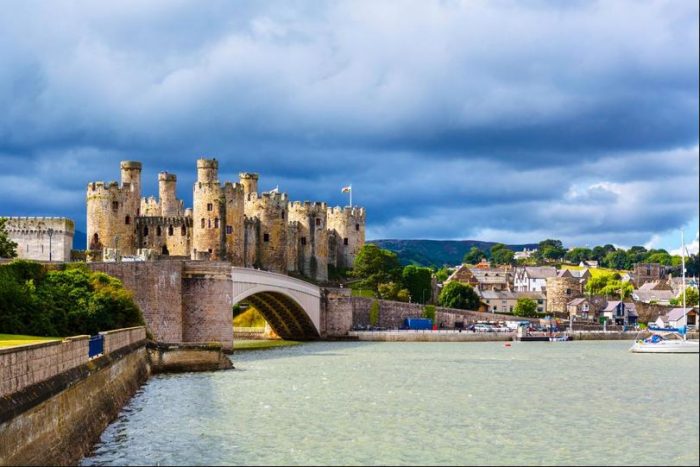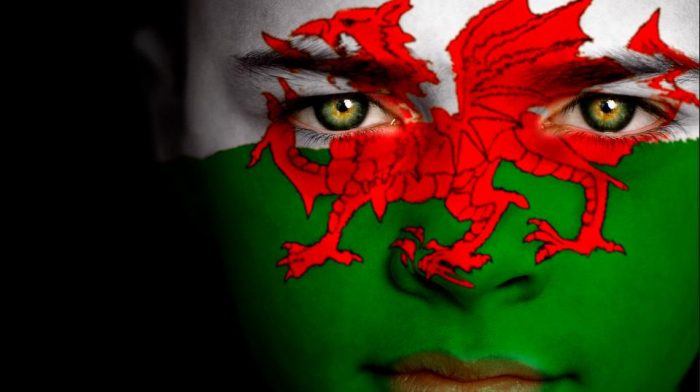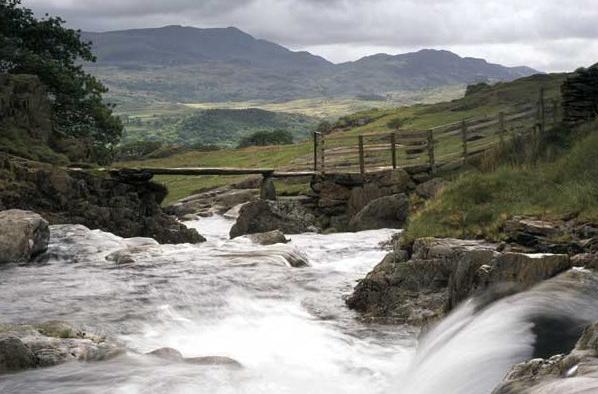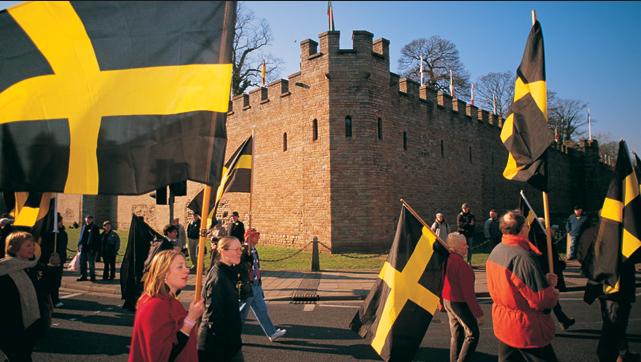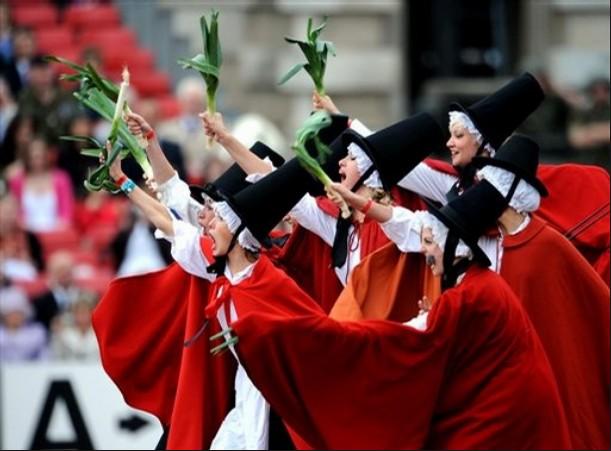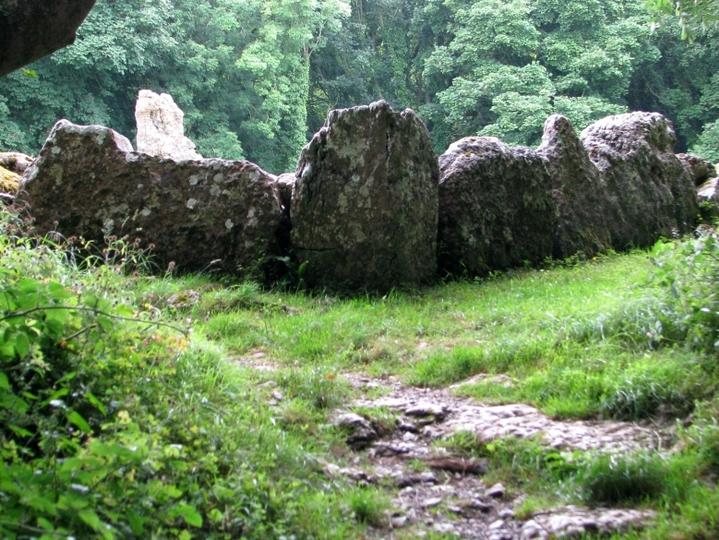The Nationalism Project – Wales

This is an extract of The Nationalism Project, an impressive collection of scholarly resources related to the study of Angloceltic nationalism including leading definitions of nationalism, book reviews, web links, subject bibliographies, a bibliography of more than 2,000 journal articles, and much more.
The site was created in 1999 by Eric G.E. Zuelow, currently Assistant Professor of European History at the University of New England in Biddeford, Maine, America.
This article extract concerns nationalism specific to Wales. Updates have been made.
Politics
Institute of Welsh Affairs: The IWA is an independent think tank and research institute, based in Cardiff but with branches operating in north, mid and west Wales, Swansea Bay, and London. Founded in 1987 their goal is to raise the level of information and debate on Welsh public policy issues by publishing reports and policy papers.
National Assembly for Wales: After Devolution bills passed in both Scotland and (more narrowly) in Wales, the process of establishing the new Assembly’s got underway. This is the Web-based component of the Welsh effort. “With the launch of a new phase of the Assembly Information Campaign, this website has being redesigned to make all the latest news more accessible. Access to the Welsh Office, WDA and the Wales Tourist Board websites are now gained via this site.”
Cymdeithas yr Iaith Gymraeg (the Welsh Language Society): is a radical pressure group campaigning for the Welsh language. (When you first access this site, it is in Welsh. A small link to English language materials is located on the upper right of the main menu.)
Political Parties/Nationalist Organizations
Plaid Cymru: (Party of Wales) is the major nationalist party in Wales. They frequently win Parliamentary seats and forward similar policies (with perhaps a little more cultural focus) to those of the Scottish National Party.
Llais Gwynedd: Llais Gwynedd or Voice of Gwynedd is a small regionalist political party based in Gwynedd in North Wales. The party formed following the Plaid Cymru executive’s proposal to more than halve the number of primary schools in Gwynedd by closing rural schools, many of the members being former members of Plaid.[2][3] The campaign was founded as Llais y Bobl, or “People’s Voice”, but the name was changed due to there being another party by that name in Blaenau Gwent
Nationalism
Annibyniaeth i Gymru (Welsh independence): is a political ideal advocated by some political parties, advocacy groups, and people in Wales that would see Wales secede from the United Kingdom and become an independent sovereign state. This ideology is promoted mainly by the Welsh nationalist party, Plaid Cymru.
Cymru 1400: (Plaid Glyndŵr): is a minor political party and in defence of Welsh culture aiming to give Welsh nationalists a choice at the ballot box during local elections. They argue that tourism is killing Wales. Cymru 1400 is currently in its infancy. They believe in one nation and one flag and that Cymru should be an independent nation outside of the European Union.
Tourism/Heritage
Activity Wales: Information on traveling in Wales, as well as a travel magazine focused on Wales.
Castles of Wales: Information, history and photos of the many castles in Wales.
Official Wales Tourist Board: The government agency in charge or promoting tourism in Wales.
Snowdonia: Situated on the west coast of Britain covering 823 square miles of diverse landscapes, Snowdonia National Park is a living working area, home to over 26,000 people. As well as being the largest National Park in Wales, Snowdonia boasts the highest mountain in England and Wales, and the largest natural lake in Wales, as well as a wealth of picturesque villages like Betws y Coed and Beddgelert. Snowdonia is an area steeped in culture and local history, where more than half its population speak Welsh.
History
19th Century Welsh Newspapers: National Library of Wales page detailing the periodical press in Wales during the 19th Century.
Council for British Archaeology – Wales: CBA Wales is the national group which represents the general objectives of the CBA in Wales. As the changes brought about by devolution unfold in the coming years, CBA Wales will continue to support the UK-wide policies of the CBA but will also focus on the special needs of Wales in all aspects of archaeological understanding and conservation, from the earliest times to the age of industry and beyond. Its concerns will include the legal and administrative framework for exploration and protection of archaeological sites and landscapes, the special characteristics of the historic environment in Wales, and the better appreciation of archaeology and the historic environment by all who live, work or take their holidays in Wales.
Culture
Welsh Photographic Federation: “The Welsh Photographic Federation comprises of 52 clubs spread from Aberystwyth in the North to Newport and Haverfordwest in the South. The Federation caters for some 1200 photographers. During the year it puts on numerous exhibitions of work by Welsh photographers, at venues throughout the area, and biannually from further afield.”
Amgueddfeydd ac Orielau Cenedlaethol Cymru – National Museum & Gallery of Wales: Contains information about their sites and collections, as well as providing other educational materials. (Warning: this site loads very slowly.)
The British Council – Wales: The Welsh division of the United Kingdom’s international network for education, culture and development services.
Famous Welsh Website: Welsh writers share the bardic tradition with stories and adventures written for over a millenium. Today we can enjoy story telling in many formats and this celtic skill has adopted the new mediums. Wales has produced some of the finest poets, novelists and even screen writers in history. Explore out list of Welsh writers to find Dylan Thomas, Alexander Cordell, Craig Thomas, Dick Francis, Bertrand Russell, Ian Hislop and may many more!
Arts Council of Wales: A group working to promote the arts in Wales.
Stones of Wales: The site creators visited 80 Welsh Neolithic sites and are now putting information about these sites online. Includes driving directions, a brief description of the site, photos and more.
Welsh Language Commissioner: The principal aim of the Welsh Language Commissioner, an independent body established by the Welsh Language (Wales) Measure 2011, is to promote and facilitate use of the Welsh language. This will entail raising awareness of the official status of the Welsh language in Wales and by imposing standards on organizations. This, in turn, will lead to the establishment of rights for Welsh speakers.
Two principles will underpin the Commissioner’s work:
- In Wales, the Welsh language should be treated no less favourably than the English language.
- Persons in Wales should be able to live their lives through the medium of the Welsh language if they choose to do so.
Countryside Council for Wales: “The Countryside Council for Wales is the Government’s statutory adviser on sustaining natural beauty, wildlife and the opportunity for outdoor enjoyment in Wales and its inshore waters. The national wildlife conservation authority.”
Welsh Studies Association: “NAASWCH is a multidisciplinary association of scholars, teachers and individuals based in North America and dedicated to advancing scholarship on Welsh studies, supporting the study of Welsh-American culture and fostering international bonds between scholars, teachers and the Welsh-American community.”
Cymdeithas Madog: the Welsh Studies Institute in North America Inc., is a tax-exempt, non-profit organization dedicated to helping North Americans learn, use and enjoy the Welsh language. It takes its name from Madog ab Owain Gwynedd, a Welsh prince who sailed (according to legend) to America in the 12th century. That makes him a fitting symbol of the cultural and linguistic links which Cymdeithas Madog maintains between Wales and the New World. Cymdeithas Madog is a clearinghouse for information about Welsh language resources. We can help you find Welsh literature, publications from Wales, books about Wales and Welsh in Welsh and English, Welsh music, and Welsh resources on the internet.
News Media

